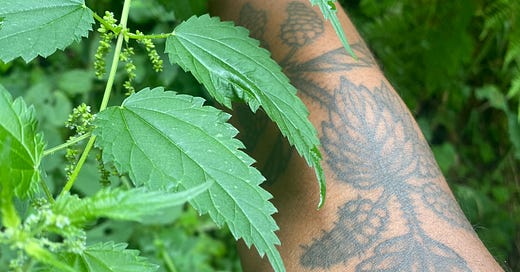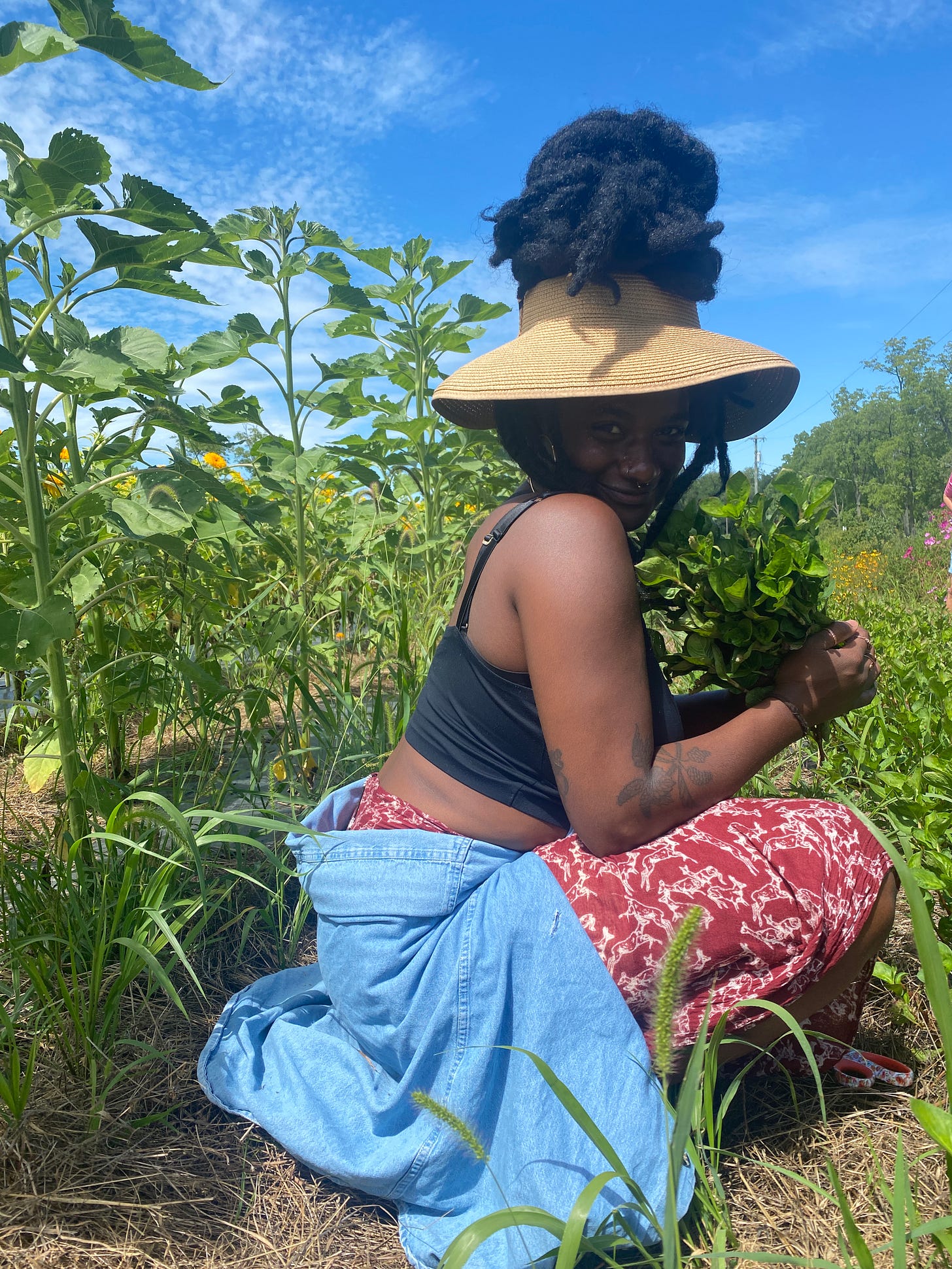I was raised by the sweet water lakes that I strolled to in the summer and wooded parks that were a short bike ride away. I dug worms, ran amongst the fire flies, and made pictures out of dandelions. The natural world felt like an extension of my being.
I grew up in a science centered household. My father was a chemist and my mother worked in medicine. Into my adolescence, I was taught that the sole way to make it in the world was through not only academics, but specifically the sciences. It was how we proved ourselves and earned our keep.
When I went to university, I had no confusion or hesitation around my field of study. My feelings for the natural world still burned like an ember in my chest and academia was where I was given permission fan the flame. My natural science professors were passionate about what they did: geeks for plants, rocks, fungi, and stars. It was in these classrooms that I fell in love with the ancient facies of alluvial fans and the morphological adaptions of forest flowers. But when a choice needed to be made, I chose plants over rocks and followed that love into the labs at the Chicago Botanic Garden.
Some of the warmest people I have ever known took me under their wings and cracked open my world. I joined them in meetings, used dichotomous keys, and recorded seed counts of our blooming lab flowers. However, it was not in the lab, but in the field that I truly found my way. For hours, we would sit in the Chihuahuan Desert amongst the evening primroses watching and waiting for pollinators to arrive. It was in the quiet of these spaces that I learned of the power of sitting with the plants and listening.
After graduating I felt a bit lost. I knew I wanted to know that plants; I wanted to learn with them until my mind ran over. But I couldn’t help but feel there was something missing. I wanted a way of connecting that felt rooted in my very being; I craved an ancestral tether that seemed to evade my grasp. I wanted a relationship that highlighted my kinship with the land rather than demonstrating my desire to be intellectually dominant over it.
So I took some time to think. I spent time with the water, the plants, the woods, and the stone, hoping to find some answers. I camped and backpacked and saw so much beauty. One warm sunny day, I laid sprawled out by the base of a tree, reading my book. In this story there was mention of a medicine worker: someone who could address the plants my name and heard their response. She reveled in their wisdom and collaborated with them to heal. She connected the traditions of the past with the lineage of her future. It struck a nerve and suddenly I knew.
I returned to the Chicago, did a year of self study, and enrolled in my first herb school. Two weeks prior to the start date, I had fallen ill and was admitted to the hospital. By the 6th day, I was septic and things were looking dire. I lost my some of my organs and so much of myself that day, but somehow managed to hold onto my life. The western medical system upheld its reputation for failing Black folks that come to their doors. I could say so much more, but that feels like a story for another time.
The point of the matter is, when I returned to my home with a gauze filled crater in my abdomen, began my virtual classes, and faced an 8 month recovery, it was the plants that saved me. And I assure you friends, this is not hyperbole. It was them that breathed vitality into my frail body and repaired my broken spirit. It was in the plants that I found living when western medicine was content in just keeping me alive. I had finally found my way back home: a homecoming that encompassed the dreams of my ancestors. My heart had been set a blaze and my future became clear. Plant medicine was my path.
I was walking through Baltimore several months ago with a good friend of mine. I noticed many Black folks in the community had amputations. This is sometimes a complication of diabetes that I have seen in family before. As we made our way back to my friends home, I laid my eyes on what was acres of Japanese Barberry, a common invasive, growing over every inch of the road side. I felt a rage swell up inside my chest and tears rise just under the surface of my eyes. Japanese barberry, even as an invasive, is a plant proficient in the regulation of blood sugar, traditionally and clinically. Medicines so abundant, yet just barely out of reach.
Relearning our medicines is not a commitment I take lightly. My relationship with the land is not based in aesthetics or flippancy. Our collective return to the land is part of my politic and my praxis. We live in a state of disconnection fueled by the continued theft of indigenous lands and their subsequent commodification and exploitation of them. It is a pillar of this empire that must be brought down. To live in reciprocity with the community found in nature: the water, the air, the soil, the plants, the animals, and ourselves exists starkly juxtaposed to colonialism, capitalism, and white supremacy. This empire makes light of enacting war on our bodies, engaging in mass disabling efforts for the sake of profit and conquest. We see it with Gaza. We see it in Sudan. We see it in Congo. We see it in the pandemic. We see it in our histories.
To engage with the plants is to hold the teachings of my ancestors close. It is to reclaim our histories and acknowledge the ways we were meant to live. It is to call in better futures for our communities: futures where we are seen as worthy of life and care and our sickness and death is not a consequence of a greedy regime.
So here I am, sitting along the sycamores, speaking with my elders, communing with the nettles, and trying to soak up all that I can. And the thing about gaining knowledge is that there is then an obligation to share it, as those have share with you.
This is the reason I cultivate the learning and teaching spaces that I do. It is a joy and an honor.
If you feel the plants are calling to you;
If you feel called to reconnect with the land, your lineage, or yourself
If you want to build new worlds, then join me, wont you.
The Spring ‘24 Connecting to Our Roots: Intro to Herbalism Intensive is beginning in less than a week.
Let’s rekindle the flame together.
To learn more about CTOR Spring ‘24 Cohort, visit the link below:
https://www.raeflowerholistics.com/herbal-education
If cost is the only barrier, please reach out! In my first year of herb school, after leaving the hospital I was given the aid that I needed and so I am trying to do the same in tern. There are sliding scale/ pay what you can models that intend to work with everyones need.
Applications close March 26th.
I look forward to seeing you there.







thank you for this offering, your storytelling is so beautiful and poignant. i appreciate learning of both your pain and healing as it empowers me to make it through my own 💗